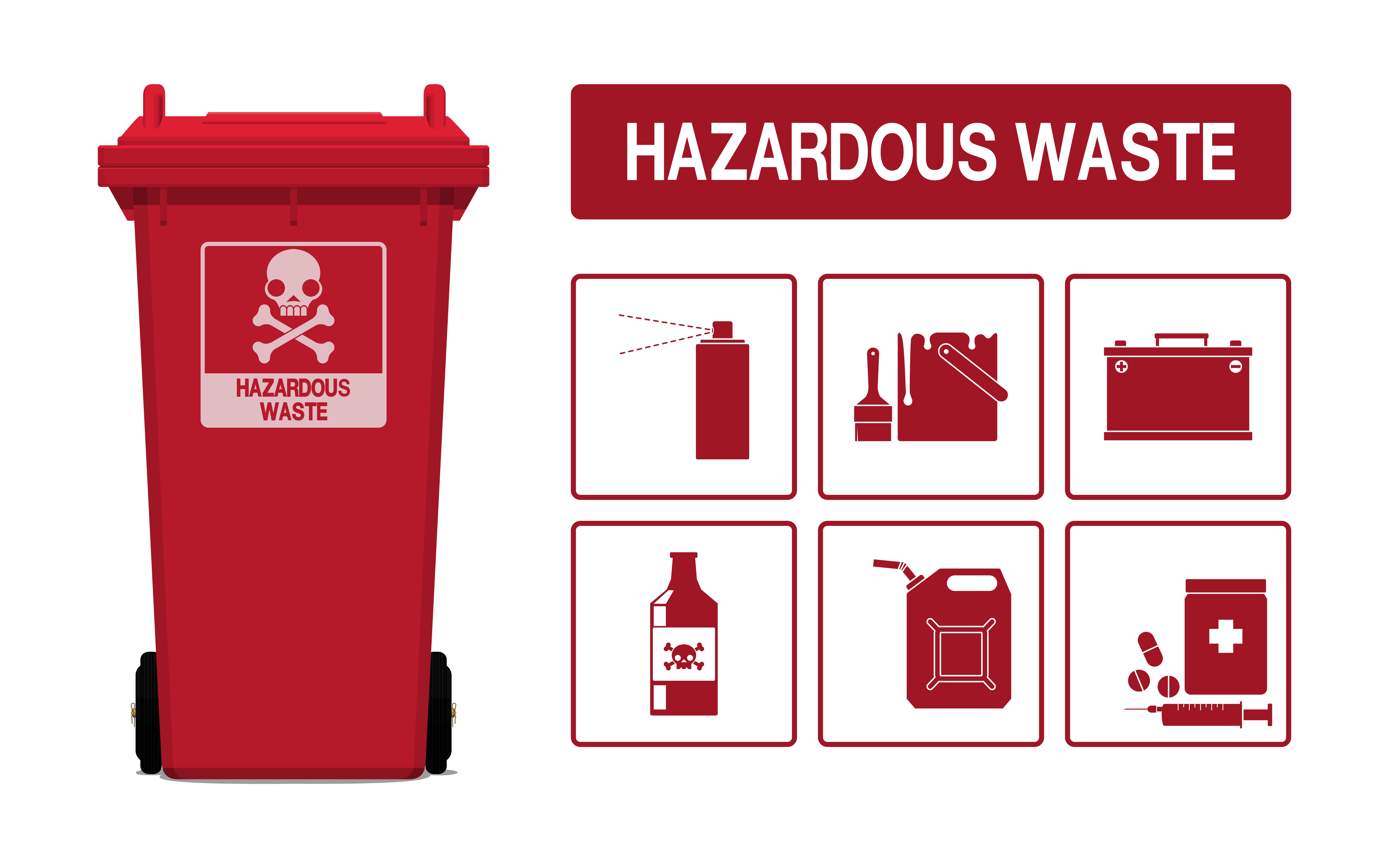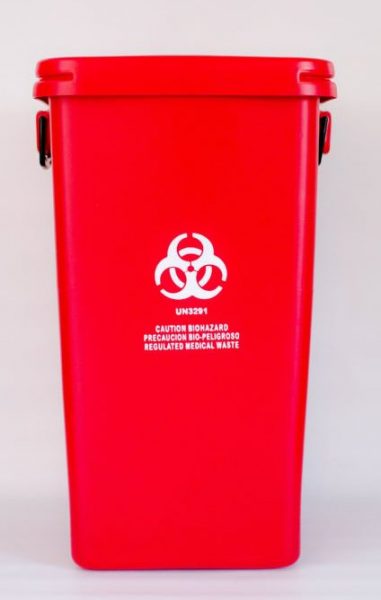Your Relied On Partner: Medical Waste Removal Services Tailored to Your Needs
Wiki Article
The Importance of Correct Medical Waste Disposal: A Guide for Health Care Facilities
Appropriate clinical waste disposal is an essential element of medical care center monitoring, making certain the safety and well-being of clients, staff, and the environment. From understanding the different classifications of clinical waste to conforming with regulative demands, health care facilities need to embrace efficient waste partition methods and pick suitable disposal approaches.Understanding Clinical Waste Categories
Recognizing clinical waste groups is vital for appropriate disposal in health care centers. Medical waste is a wide term that includes different sorts of waste generated in healthcare setups, such as healthcare facilities, labs, and facilities. Categorizing medical waste assists ensure that it is taken care of, kept, and disposed of safely and according to applicable laws.There are a number of groups of clinical waste that health care centers require to be knowledgeable about. These groups include infectious waste, sharps waste, pharmaceutical waste, chemical waste, and radioactive waste (medical waste disposal services with WasteX). Each classification has details characteristics and requires various disposal approaches to minimize the danger of damage to health care workers, people, and the environment
Contagious waste, for example, refers to throw away infected with potentially infectious products, such as blood, body liquids, and tissues. Pharmaceutical waste consists of ended or extra medicines, while chemical waste is composed of harmful chemicals used in clinical procedures.
Compliance With Regulatory Requirements
Medical care centers have to guarantee compliance with governing demands for correct medical waste disposal. Regulative bodies, such as the Epa (EPA) and the Occupational Safety And Security and Health And Wellness Management (OSHA), have actually developed guidelines and regulations to safeguard public health and wellness and the environment. These laws detail the correct handling, storage space, transport, and disposal of medical waste.Conformity with regulative needs is important for healthcare centers to avoid legal penalties, reputational damages, and possible harm to human health and wellness and the environment. Failure to comply with these regulations can lead to fines, lawsuits, and also the suspension or abrogation of running licenses.
To ensure conformity, medical care facilities need to establish detailed waste management programs that consist of team training, appropriate waste partition, and the usage of ideal containers and tags. Normal audits and examinations should additionally be performed to recognize any non-compliance problems and resolve them quickly.
It is essential for health care centers to stay up to date with changes in policies and upgrade their waste monitoring practices appropriately. This can be attained by proactively keeping track of updates from regulative bodies and joining training programs and workshops.
Executing Efficient Waste Segregation Practices
To make sure correct medical garbage disposal, medical care centers should execute efficient waste segregation practices. Waste segregation is a crucial step in the overall waste administration process, as it helps decrease the threat of infection, protects against cross-contamination, and makes certain the secure disposal of various types of waste. Efficient waste partition techniques involve separating medical waste right into various categories based upon its characteristics and possible dangers.One typical method is the segregation of sharps waste, such as needles and scalpels, from other sorts of clinical waste. Sharps waste ought to be put in puncture-resistant containers to avoid injuries and prospective infections. Additionally, harmful waste, such as chemicals and pharmaceuticals, must be separated from basic medical waste to stop environmental contamination.
Correct labeling and color-coding of waste containers are crucial for reliable waste segregation. his explanation Clear and visible labels should be put on each container to show the sort of waste it contains and any special delivery requirements - medical waste disposal services with WasteX. Furthermore, color-coding can be used to differentiate in between various waste groups, making it less complicated for health care personnel to get rid of and determine of waste appropriately
Regular training and education and learning for health care personnel is crucial for the effective implementation of waste segregation methods. Personnel must be educated on the different waste categories, proper partition strategies, and the value of following waste administration procedures. This will certainly assist make certain compliance and consistency in waste partition techniques throughout the facility.
Deciding On Appropriate Disposal Techniques
Appropriate choice of ideal disposal approaches is important in making sure the environmentally responsible and risk-free administration of medical waste in healthcare facilities. Health care facilities create a range of medical waste, including sharps, transmittable waste, pharmaceutical waste, and chemical waste - medical waste removal near me. Each type of waste calls for certain disposal techniques to lessen the danger of contamination, injury, and environmental harmOne typical disposal approach for medical waste is incineration. Incineration involves the regulated burning of waste at high temperature levels. This approach is efficient in damaging pathogens and lowering the quantity of waste. However, it can release harmful contaminants into the air otherwise appropriately controlled.

Chemical sanitation is another approach used for specific kinds of medical waste, such as pharmaceutical waste. This method utilizes chemicals to counteract or destroy impurities. Nevertheless, it is very important to choose chemicals that are ecologically pleasant and secure.
In many cases, land fill disposal may anchor appropriate for non-hazardous clinical waste (medical waste disposal services with WasteX). Appropriate segregation and product packaging are essential to stop leak or contamination.
Inevitably, health care facilities have to carefully assess the features of their clinical waste and choose ideal disposal methods that focus on security, ecological security, and governing conformity. Normal training and tracking are important to make certain that medical care staff adheres to appropriate disposal procedures.

Training and Educating Team on Proper Disposal Procedures
Team education and training play a critical duty in making sure the correct disposal of clinical waste in health care centers. It is necessary that all team member, including medical professionals, registered nurses, technicians, and assistance staff, obtain thorough training on correct disposal treatments. This training must cover the various kinds of clinical waste, their potential dangers, and the appropriate methods for taking care of, segregating, and taking care of them.Among the key objectives of team education and training is to make sure that all medical care experts comprehend the significance of appropriate disposal treatments and the prospective repercussions of improper waste management. They need to be knowledgeable about the risks related to clinical waste, such as the transmission of infections and the contamination of the setting. medical waste removal near me. By recognizing these threats, personnel will certainly be extra inspired to adhere to proper disposal procedures and take the necessary preventative measures to shield web themselves, their colleagues, and the neighborhood
Educating need to additionally cover the use of individual protective equipment (PPE) and the proper strategies for managing clinical waste. Personnel need to be enlightened on how to determine and segregate various kinds of waste, such as sharps, contagious waste, and harmful chemicals. They should likewise be educated on the appropriate use of waste containers, such as sharps containers and biohazard bags, as well as the significance of labeling and securing these containers correctly.
Additionally, personnel education and learning and training should include normal updates and refresher training courses to ensure that health care experts stay informed about the current laws and ideal techniques in clinical garbage disposal. This continuous education is important to keep a high degree of recognition and conformity amongst employee.
Final Thought
In verdict, appropriate clinical waste disposal is of utmost significance for healthcare centers. Recognizing the various classifications of clinical waste and abiding with governing requirements makes sure the security and wellness of both healthcare employees and the basic public.From recognizing the different classifications of medical waste to conforming with regulatory demands, healthcare centers must adopt effective waste segregation techniques and select suitable disposal methods. These groups include transmittable waste, sharps waste, pharmaceutical waste, chemical waste, and contaminated waste.To make certain appropriate medical waste disposal, healthcare facilities need to implement reliable waste partition practices. Waste segregation is a critical action in the total waste administration procedure, as it helps decrease the danger of infection, prevents cross-contamination, and makes sure the safe disposal of different kinds of waste. Healthcare centers generate a variety of clinical waste, consisting of sharps, contagious waste, pharmaceutical waste, and chemical waste.
Report this wiki page